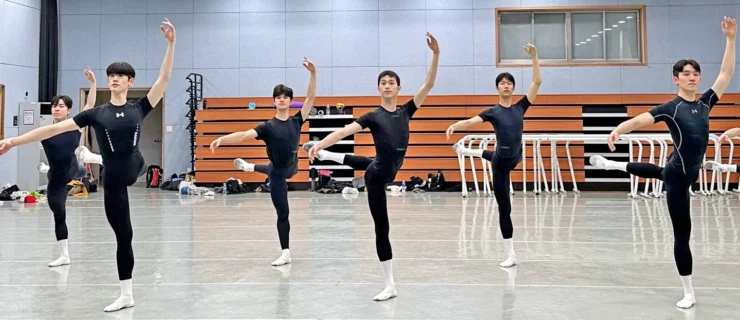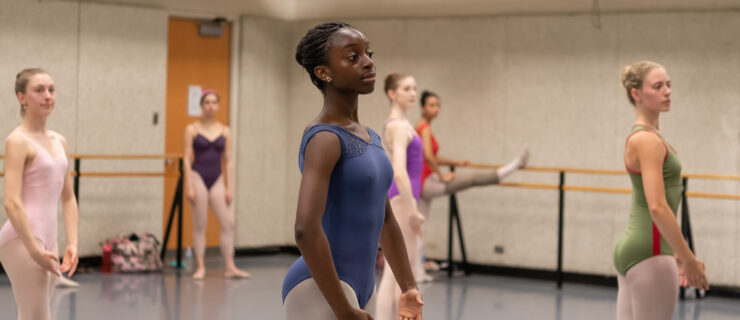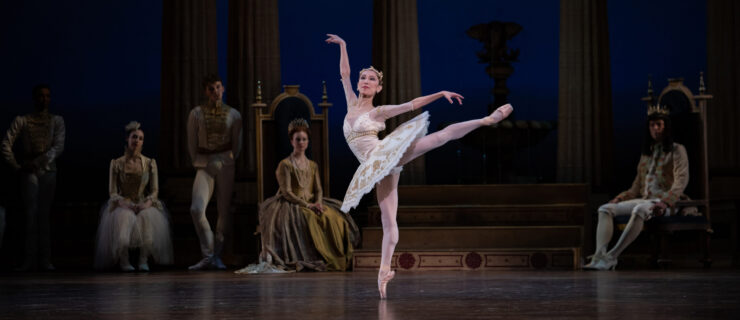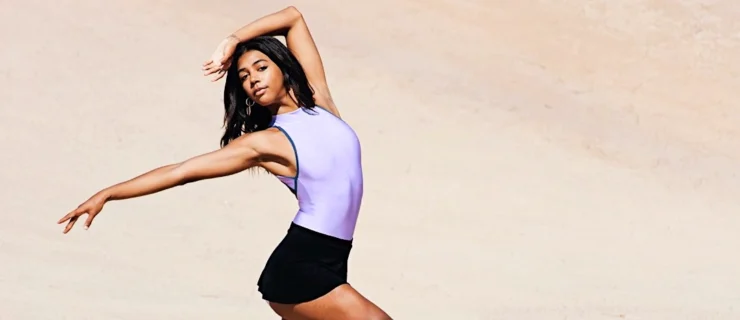What’s It Like for Dancers Who Double Major in College?
Updated 9/12/22.
“Let’s face it,” says Bettijane Sills, former New York City Ballet soloist and current professor of dance at SUNY Purchase. “It’s really difficult to get a dance job that pays the bills.” No wonder many college-bound dancers plan a second major in something other than ballet.
Beyond providing a “backup degree,” double majoring lets you pursue a nondance academic interest in a meaningful way, which could end up enriching your dancing with newfound knowledge and experiences. But double majoring isn’t for the faint of heart. If you are considering this option, read on for all the “major” pros and cons.
Con: It’s Double the Workload
Unless you can take a fifth year to finish undergrad (or your second major’s requirements overlap with those of dance), you’ll be saddled with at least a full course load every semester. That was the case for Roanoke Ballet Theatre’s LeeAnn Elder, who graduated from Radford University in 2014 with a BFA in dance and a BS in nutrition and dietetics. “Every semester, I would take up to 21 credits,” she says. (At most universities, 15 to 16 credits is a full course load.) “It felt a lot like my high school schedule: You have school, then you go to dance, then you’re rehearsing and finishing homework late at night.”
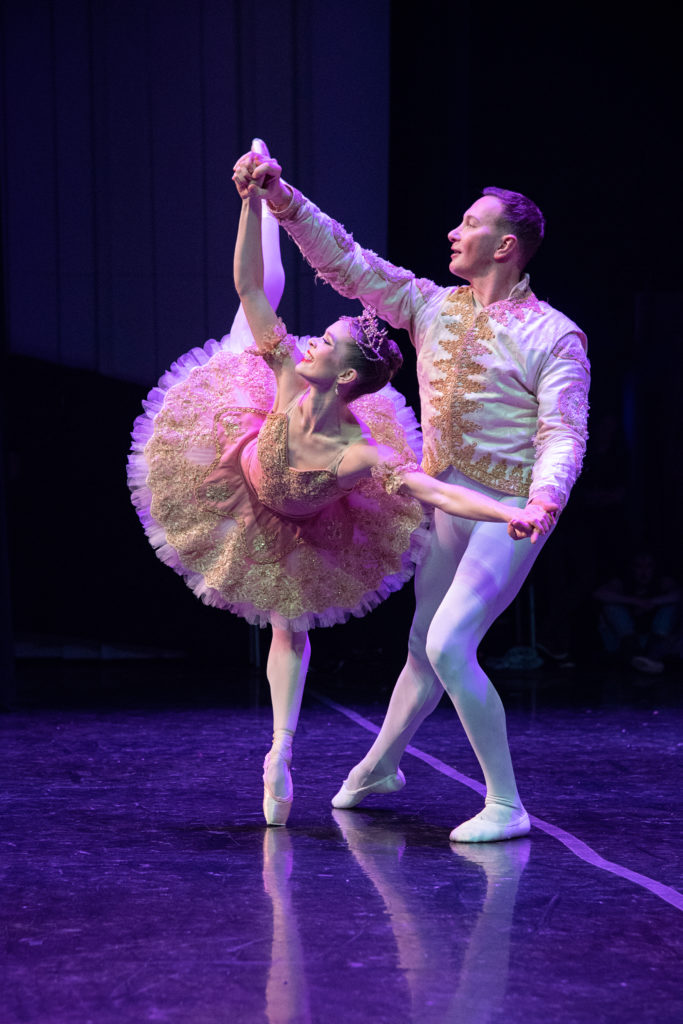
Ashlan Zay had much the same experience. At the University of Missouri, Kansas City, she earned a BS in health sciences and a BFA in dance. “Taking 18 to 22 credit hours per semester is pretty stressful,” Zay says. Through trial and error, she figured out she could handle two health sciences courses per semester while maintaining the bandwidth to dance her best. “There’s just less time and less mental capacity to go around,” Zay says, “so I [had] to be smart about dedicating time to cross-train, go over choreography and come up with choreography of my own.” Still, exam periods and performance weeks remained overwhelming, and both Elder and Zay had less time and energy for socializing than some of their peers.
Pro: Get Two Degrees for the Price of One
Ballet dancers are no strangers to hard work and determination, which Elder says are key to winning the double-major game. “My nutrition advisor kept trying to get me to drop dance and focus on nutrition,” she recalls. “But my personality drove me to accomplish it. I’m a ‘Keep going until it’s done’ kind of person.” Looking back, Elder feels amazed and proud to have conquered so much academic material as an undergraduate.
Sills points out that some second majors mesh naturally with a dance major: “There was one [SUNY Purchase] double major in arts management who wound up being a manager for NYCB, and another in liberal arts who’s written for The New York Times.” If you’re truly passionate about another subject—or can clinch a dance-adjacent major by taking just a few more classes—there’s little reason not to grab an additional degree.
Con: Feel the FOMO
In double majoring, as in life, having it all is a myth. “I didn’t really missed out on anything dance-wise, because I made dance my priority,” Zay explains. She estimates that she divided her energy and time between the two majors 75/25, always in dance’s favor. Elder tried joining Radford’s dietetics club, but “that was the first thing that got dropped because of time issues,” she says. She was thrilled to study abroad one winter break, since a semester overseas was out of the question.
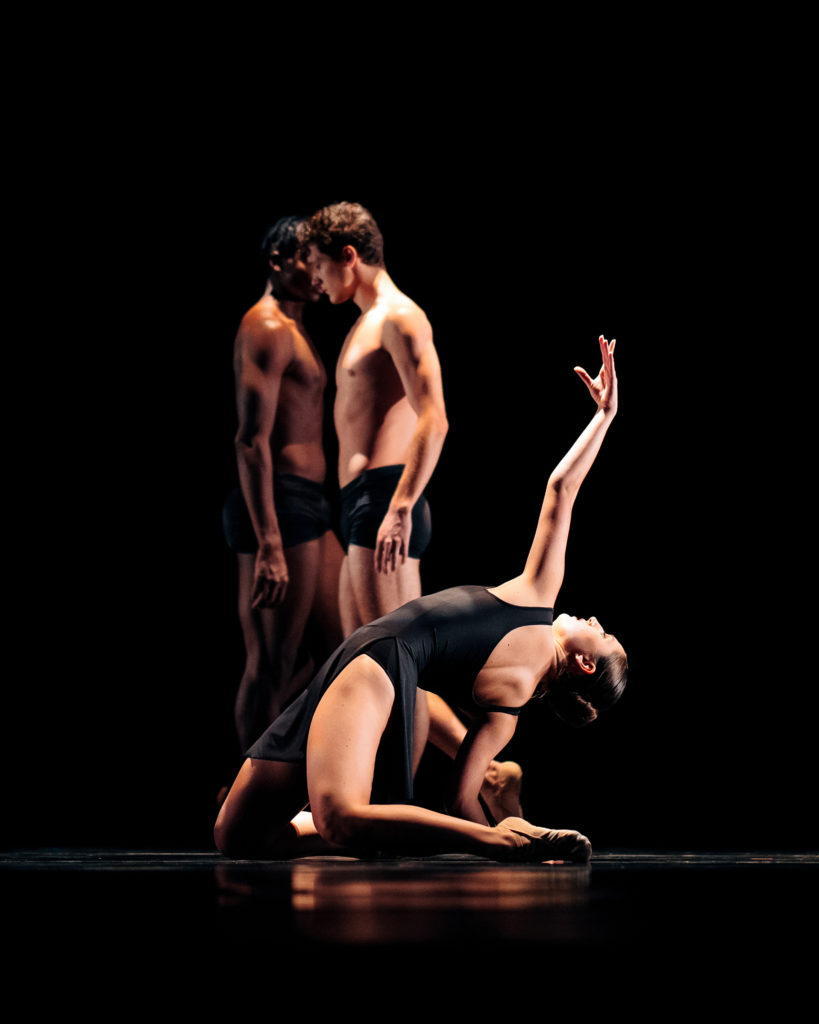
No matter how organized and hardworking you are, scheduling conflicts can be a headache for double majors—especially where the hard sciences’ lab courses are concerned. When academic commitments clashed, Zay and Elder found dance faculty to be accommodating: “There was at least one class I got to take a year early because it clashed with a nutrition lab,” Elder says. Unfortunately, professors in their second majors were usually less flexible. As a result, Elder and Zay had to spend summers getting general-education or prerequisite courses out of the way—which meant passing on some summer study or professional opportunities.
Pro: You’ll Be Prepared for Life After Ballet
Zay chose her second major in health sciences specifically because she eyed a future career in physical therapy. “You can only dance for so long,” Zay says, “and I knew I would prefer to do something other than teach dance after I’m done performing.” Though Zay will have to pursue further education before she can begin practicing physical therapy, just knowing she has this secondary undergraduate degree is reassuring. “One day in the future when my dance life is over,” she says, “I won’t have as much of a hard transition or identity crisis because I do have other things I’m interested in.”
These days, Elder uses her nutrition and dietetics degree to plan meals for herself and her family: “Meals that replenish the body in a healthy way after rehearsals and performances is very important to support my dancing career.” She also wonders if that extra line on her resumé indirectly contributes to her professional life. “I manage all the financials for Roanoke Ballet Theatre,” Elder says. “That’s not nutrition related, but just like I did in college, it’s nice to be able to show that I can do things other than dance.”
Sills adds that a second major could work in your favor when applying to MFA programs by showing the panel you’re a dedicated student with diverse interests. Just make sure you’re double majoring in something you love as much as ballet. Otherwise, the extra workload simply isn’t worth it—and could eventually lead to burnout. “If one is motivated and curious about the world, the more educated one is the better,” Sills says. “When you expand your horizons and interests, you’ll be surprised how you’ll be able to use that in your life and in your dance career.”


